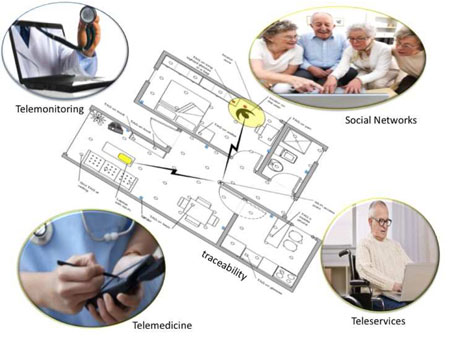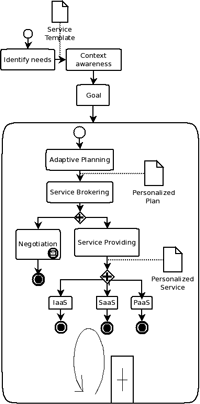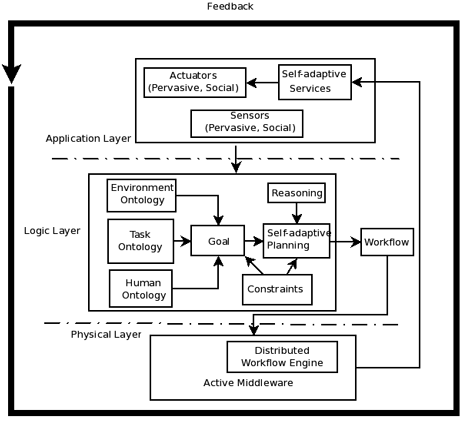by Flavio Corradini, Emanuela Merelli, Diletta R. Cacciagrano, Rosario Culmone, Luca Tesei and Leonardo Vito
ACTIVAge is an on-going project at the University of Camerino within the JADE project “Joining innovative Approaches for the integration and Development of transnational knowledge of cluster policies related to independent living of Elderly” (FP7-Capacities 2011-2013). ACTIVAge aims at defining a framework for designing personalized, adaptive and ubiquitous services and applications improving the quality of life of elderly people.
Community care policies and socio-cultural values make family care the predominant model of welfare support for elderly people across Europe. This model also fulfils the wish of many elders who prefer to safely live at their home, keep their own social context, socialize with family members and friends, and cultivate their own interests and hobbies. Within a familiar home environment they receive support for their loneliness and possibly for their chronic illnesses. During recent years, however, the global increase in divorce rates, family mobility, women in the workforce and higher average age of retirement for women have altered family patterns and, as a consequence, it is becoming unfeasible to provide care to the elderly according to the classical model. Furthermore, governments are under economic pressure to keep under control the costs of the public welfare system that is usually committed to providing in-hospital care, day services, institute-based respite care, holiday respite and home-based sitting services.

Figure 1: ACTIVAge idea: the smart home is equipped with sensors that enable personalized services.
ACTIVAge addresses this challenge by supporting a paradigm shift in welfare delivery. It is focused on the autonomous citizen and on an independent, high-quality living model. Consequently, pressure on the overburdened welfare system is reduced and, at the same time, it benefits involved users.
The ACTIVAge idea (Figure 1) is to provide a new generation of services and applications that are different from the traditional ones owing to (i) their ability to be personalized, ie, customized to the specific individual needs (Figure 2), (ii) their adaptive nature, ie, they are able to adapt, at run-time, to changes of the user needs, and (iii) their ubiquity/pervasiveness, ie, they are available at any place and at any time.

Figure 2 Adaptive approach: a BPMN description of the planning process to provide a personalized service.
ACTIVAge pivots on an abstract concept of sensor. According to its vision, the general concept of entity is used to identify any kind of object either physical, artefact or abstract. Physical and artefact entities (eg people, smartphones, domestic appliances, air conditioning, automatic doors, and so on) play the role of pervasive sensors, that is, they are equipped with a traditional device permitting identification and/or transmission of signals (RFId, GPS, Wi-Fi, and so on). Abstract entities, including social networking activities such as Facebook and Skype, act as social sensors, gathering information about the way the user is feeling.
Any entity is described using the ACTIVAge description language. This language, based on a multi-level ontology meta-model, allows the description and annotation of both environmental and emotional data.

Figure 3: ACTIVAge engine architecture: multi-layer organization, integration and interaction of the main components.
The core of ACTIVAge is a reasoning and planning engine (Figure 3). It is based on an adaptive planning solver and on decision making algorithms. Thus, it can provide personalized and adaptive services at run-time, ie, specific solutions are given to reach the same user goal depending on its continuously changing needs and states. For instance, if the service is a Web Service then the planning solver can exploit run-time orchestration of services to identify a way to deliver the service that is the best for the user under consideration and its current context. ACTIVAge provides its run-time services using the cloud computing paradigm.
Currently, ACTIVAge is partially implemented and is being used in the healthcare domain for the development of a drug dispensary service for people with mild cognitive impairment (MCI).
Link:
http://cosy.cs.unicam.it/AAL
Please contact:
Emanuela Merelli
University of Camerino, Italy
Tel: +39 0737402567
E-mail:










